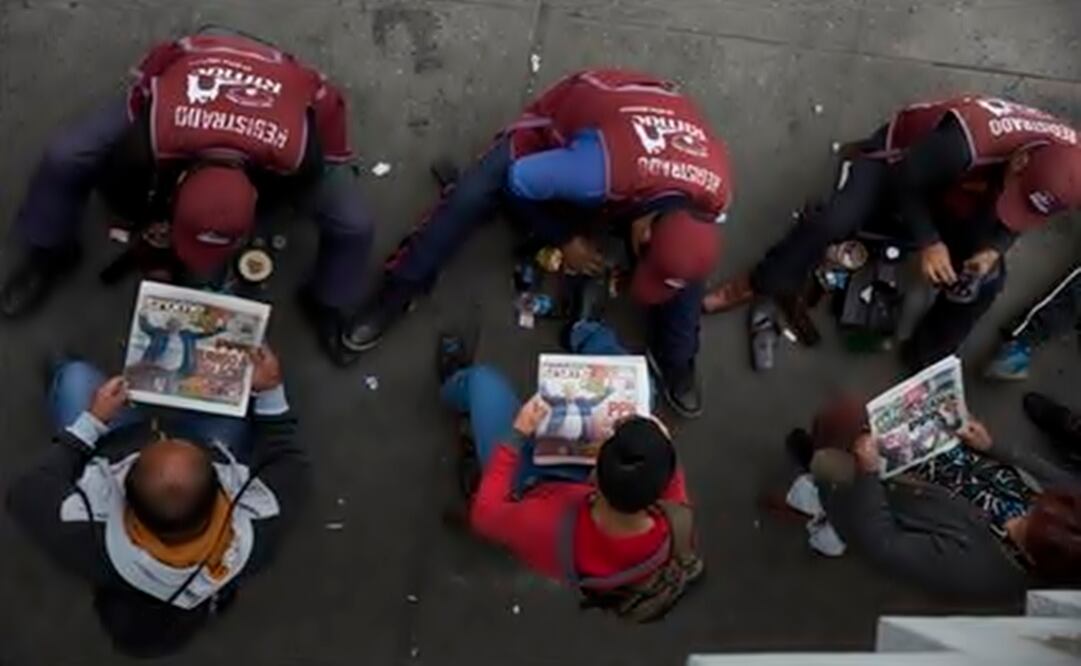Más Información

Ejecutivo no tiene facultad para eliminar impuesto a videojuegos: Monreal; corresponde al legislador corregirlo, dice

Tribunal de Disciplina inhabilita a juez federal de Guerrero; es acusado de hostigamiento sexual y uso indebido de facultades
Economist Pedro Pablo Kuczynski had a razor-thin lead over the daughter of an imprisoned former president in Peru's presidential election, as Peruvians nervously awaited results still trickling in from remote parts of the Andean nation.
With over 94 percent of polling stations counted Monday morning, Kuczynski had 50.3 percent of the votes compared to 49.7 percent for his rival Keiko Fujimori, the daughter of jailed former strongman Alberto Fujimori.
While votes from Peru's embassies abroad could take days to come in, Kuczynski supporters were optimistic they'd prevail after two unofficial quick counts showed him winning by at least 1 percentage point. While that is within the statistical margin of error of the counts, the pollsters have a track record of accuracy.
Addressing cheering supporters from the balcony of his campaign headquarters, the former World Bank economist urged them to be vigilant against fraud at the ballot box but otherwise sounded as if he had already been declared the winner.
"We're going to have a government built on consensus. No more low blows or fights," said the economist, who supported fellow conservative Fujimori in the 2011 runoff won by President Ollanta Humala.
But Fujimori showed no sign of conceding defeat.
"We're going to wait with prudence because all night votes will be coming in from the provinces, from abroad and from the rural voters of deep Peru," she said while dancing to her campaign theme song on a campaign truck parked outside the Lima hotel where she awaited results. Many see the election as a referendum on her father's iron-fisted rule in the 1990s.
On Monday morning, Kuczynski led by just under 91,000 votes, making the contest the tightest presidential election in decades. A potential swing vote in a close race could be the 885,000 Peruvians eligible to vote abroad - about 3.8 percent of the electorate - who turned out massively for Fujimori in the 2011 election.
Both candidates remained silent on Monday awaiting final results even as their aides began to jockey for positions in an eventual alliance in congress, where Fujimori's Popular Force won a solid majority of 73 of 130 seats. Kuczynski's fledgling movement will have just 18, fewer than even the country's main leftist alliance.
While Kuczynski's campaign said it is ready to work with all political groups, supporters of Fujimori expressed doubt that the wounds from the final stretch of the campaign, in which Kuczynski accused Keiko Fujimori of being the harbinger of a "narco-state," could be easily healed.
"They called us drug traffickers, thieves," said Lourdes Alcorta, a congresswoman. "It's going to be difficult for us to hug them."
It would be a stunning turnaround for the 77-year-old Kuczynski, who managed to narrow Fujimori's lead by abandoning his above-the-fray, grandfatherly appeal and attacked her as a risk to Peru's young democracy.
The reference wasn't just to Alberto Fujimori's well-known ties to corruption, organized crime and death squads, for which he's serving a 25-year jail sentence, but an attempt to draw attention to a string of scandals that have hobbled Fujimori in the final stretch. The most notable scandal was a report that one of her big fundraisers and the secretary general of her party was the target of a U.S. Drug Enforcement Administration investigation. Peru is the world's largest producer of cocaine.
Her running mate, José Chlimper, a Cabinet member at the end of Alberto Fujimori's government, also found himself in hot water for orchestrating the broadcast of a doctored audio tape in an attempt to clear the name of the party boss.
PPK, as Kuczynski is almost universally known in Peru, also benefited from a last-minute endorsement by the third-place finisher in the first round of voting, leftist congresswoman Veronika Mendoza, the protagonist of a massive anti-Fujimori demonstration last week the likes of which Peru hasn't seen since the turbulent end of Fujimori's rule 16 years ago.
Fujimori, who served as first lady in her father's administration after her parents' divorce, has tried to contain her rival's rise by creating a distance from her father's crimes, even signing a pledge not to pardon him if elected. Kuczynski during the campaign said he'd consider allowing Fujimori finish his prison sentence at home.
At the same time, she vowed to bring back the "iron hand" style of government for which many still revere the elder Fujimori, who is credited with taming Maoist Shining Path rebels as well as the country's hyperinflation. Instead of rebels, Keiko Fujimori promised to wield an iron fist against crime, a top voter concern. Among her proposals: build jails in high-altitude prisons in the Andes to punish and isolate dangerous criminals.
She also tried to cast her rival, the son of a Jewish-Polish immigrant who is married to an American and spent decades in business outside Peru, as part of the white elite establishment that has traditionally overlooked the needs of the poor.
Noticias según tus intereses
[Publicidad]
[Publicidad]












